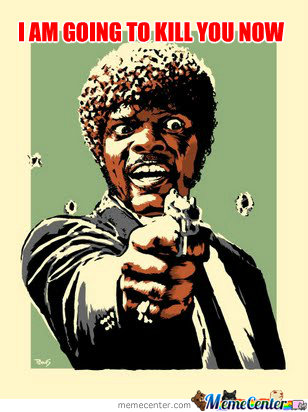
The first thing we tried to do once we had set the WIP limit (see last episode) was to start working on 5 only of the 60 cards we had on the board.
A few suggestions were thrown in, Gus mentioned a possible approach where if something is closer to the right of the board, i.e. is closer to be finished and delivered to production, then it should get precedence. This way the team could take the 5 rightmost cards and start working on them and ignore the other 55.
This sounded like a decent idea and got some nods from the team, but Fritz the business analyst had a secret that was breaking his heart, he slowly raised his hand, head slightly down and said “Lads, I don’t know how to say this, but, since we visualised the work on the board and I can actually see what you guys are working on, I started to realise that there is a bunch of irrelevant cards. Some of them are outdated, some other are plain wrong, I am so sorry”
The team were not happy, Mike, a senior developer, said “What do you mean outdated? Wrong? Why did you give us wrong and unnecessary work to do? Do you know how busy we are?”
 Fritz was blushing and wasn’t sure how to answer that question, he gathered his thoughts and then said “Folks, don’t take it out on me, but you well know that when the customers came brandishing tickets, we just took them on and started working on them, no attention was given to whether they were there to improve some older card or made them irrelevant. Our inbound pipeline is running wild! Before we had WIP limits and visualisation I didn’t even know how to tell the customers they had to wait”
Fritz was blushing and wasn’t sure how to answer that question, he gathered his thoughts and then said “Folks, don’t take it out on me, but you well know that when the customers came brandishing tickets, we just took them on and started working on them, no attention was given to whether they were there to improve some older card or made them irrelevant. Our inbound pipeline is running wild! Before we had WIP limits and visualisation I didn’t even know how to tell the customers they had to wait”
Mike was furious “Are you saying that half of the work I do every day is irrelevant? This is unbelievable, I am going to kill you!”
“Hang on, hang on, hold your horses Mike” said Gus “where you see something bad I see a massive opportunity for improvement. Listen to me carefully, here’s the plan: we take one hour to look at the board with our customers and identify the irrelevant cards. Removing them is a massive value added activity, imagine all the work you will save by not having to finish them! This is great news! After this we will have less cards left and choosing the most important 5 to start with will be much easier. It’s not an issue it’s an opportunity to improve our work stream. Fritz, thank you so much for being brave and showing the problem to us! ”
“And don’t worry Mike” Gus added “I will not forget that we have a problem managing our incoming work, we will fix that straight after”
Fritz was a bit relieved, Mike still not too happy.
We got on to it, and we soon found out, that the problem we had was even bigger than what Fritz described. Within 40 minutes we had removed 22 irrelevant or wrong cards, that would have represented at least 2 weeks work if we kept on working on them.
Some of the cards on the board were so old that the customers didn’t even remember what they were about…
While removing cards, the team, including Mike, started focusing on the positive, i.e. the work that they didn’t have to do because of the removed cards, rather than the work that they had already done on those.
The atmosphere improved substantially, from death threats, to group high fives every time we took a card off the board. The board itself started to look a bit cleaner and all we had to do now was to identify the 5 most important cards to work on, easy peasy lemon squeezy.
Once we finished, Fritz, finally freed from his secret, said “Folks, I would have never been able to do this cleanup job using the digital backlog, seeing the tickets on the board opened my eyes”
“Well” added Mike “after all it looks like, a picture” pointing at the board “is better than a thousand words in Jira”.
The team had a laugh and got back to work with a smile on their faces.
The 5th episode is out, what are you waiting for? Read it here!
If you want to talk about what’s worth _not doing_, I’d say death threats takes top priority. If someone on your team is making public death threats they need a written warning or some anger management. That behaviour is not acceptable, not least of all over there being *extra cards on a board*, and not from a senior developer.
Okay, I know it’s just a made up story, but it immediately loses credibility with events like that. Tolerating crazy events like that going unaddressed make me wonder what other dysfunctions are hiding in plain view and being ignored.
This particular story is like those cheesy sitcoms where everything works out by the end of the show. Not quite how things go in real life.
Hi Gav, thanks for your feedback.
As you guessed the death threat is an hyperbole and a such shouldn’t be taken literally, but I appreciate your feedback and I will try to take it into consideration for the future.
Yes, my story is probably cheesy and things normally end well (at least until now), I agree life is not like that all the times, as you say it is only a story, a tale, it’s not real life, and it is not meant to be.
Thanks again for your feedback, it made me think
[…] to respect the WIP limit? What will they discover while they try to adapt to the new reality? The new episode is out! Read and find […]
I think the main intention of this series (story) is to convey people.. to follow the simple principle – PDCA (Plan Do Control Act)
or think before you code.
Every body is busy in following the same tradition instead of taking time and analysing their existing process and adding value to the system.
Hi Gaurav, thank for your feedback. I am trying to transmit many different insights into this story (PDCA is certainly one). I am putting years of experience working with wonderful teams in a form of a story that might encourage readers that don’t like reading technical and process full blog posts. This is an experiment I am conducting and I am receiving extremely valuable feedback from fans and foes, all of it extremely valuable.
I have learned a lot from stories, I enjoy reading them, and I am trying to do this for people that enjoy learning the way I do.
Your feedback is very valuable and I hope you will continue to contribute to the future episodes with your insight.
[…] Not doing something useless is very valuable Written by: Augusto Evangelisti […]